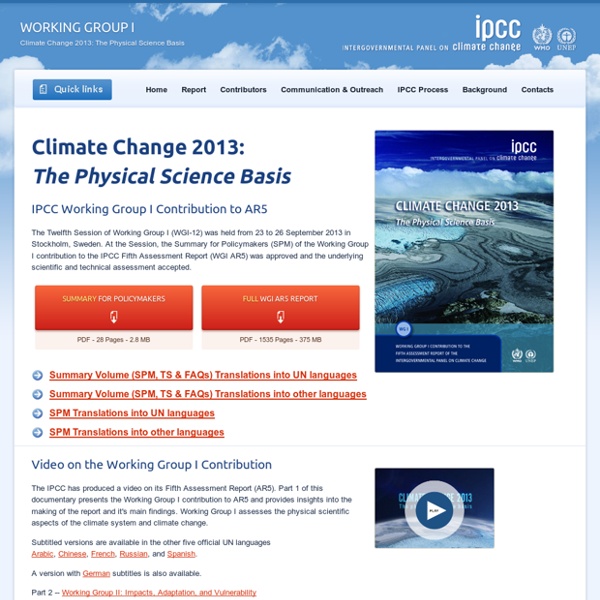



IIASA - International Institute for Applied Systems Analysis kelvy bird | surfacing latent, intuited, potential Biodiversity for a Livable Climate | Restoring Ecosystems to Reverse Global Warming IPCC - Intergovernmental Panel on Climate Change Green Seal > Home
The Xerces Society Climate Change Proceedings: Proceedings published by the National Academies of Sciences, Engineering, and Medicine chronicle the presentations and discussions at a workshop, symposium, or other event convened by the National Academies. The statements and opinions contained in proceedings are those of the participants and are not endorsed by other participants, the planning committee, or the National Academies. Consensus Study Reports: Consensus Study Reports published by the National Academies of Sciences, Engineering, and Medicine document the evidence-based consensus on the study’s statement of task by an authoring committee of experts. Reports typically include findings, conclusions, and recommendations based on information gathered by the committee and the committee’s deliberations. Each report has been subjected to a rigorous and independent peer-review process and it represents the position of the National Academies on the statement of task.
Project on Climate Change Communication April 09 2014 | Research Reports New Commentary Urges Climate Scientists to “Set the Record Straight” We just published a commentary in Earth’s Future, a new online, open-access journal published by the American Geophysical Union. The commentary is entitled: “Climate Scientists Need to Set the Record Straight: There is a scientific consensus that human-caused climate change is happening.” In the commentary, we argue that the climate science community needs to do more to communicate the scientific consensus because: (a) most Americans don’t know there is a scientific consensus on this point; (b) this lack of awareness undermines people’s engagement in the issue; and (c) research by our team – and others – has shown that simple messages that communicate this basic scientific conclusion are highly effective, especially with political conservatives. We encourage you to download the commentary and join the effort to set the record straight. Continue reading Continue reading Continue reading Topics
The Earth Institute - Columbia University Exploring Science in the Field from Pole to Pole Company Donates 330,000 Bed Nets to Help Fight Malaria in Africa Lords of the Past Ancient Rocks, Modern Problem Sustainability Management Alum Works to Bring Electric Vehicles to NYC Apr18 2014 Spring Diversity Lecture Sustainability Essentials Training Drilling to find the originsof the South China Sea The Path to Sustainable Development Faculty Profile: Ruth DeFries